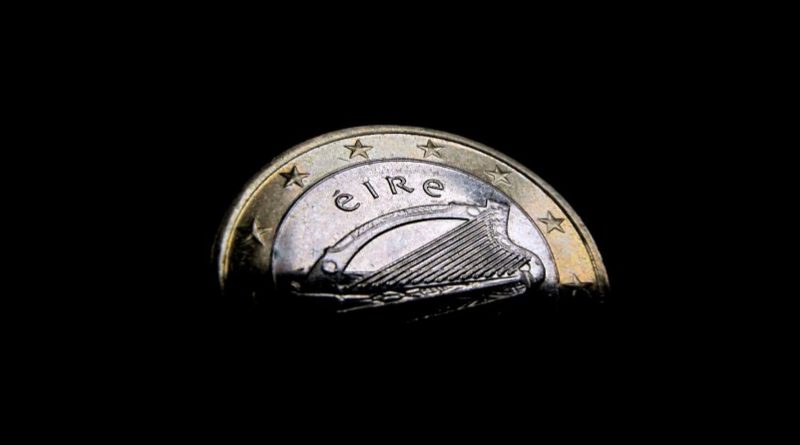Government launches €7.4bn July Jobs Stimulus
The Government has announced the July Jobs Stimulus, a €7.4bn package of measures designed to stimulate a jobs-led recovery and build economic confidence while continuing to manage the impact of Covid-19.
The July Jobs Stimulus aims to provide a boost to the economy, building confidence and moving towards a more sustainable future. This is the next stage of the national recovery and will aim to build on the supports already provided during the crisis.
Launching the Jobs Stimulus, the Taoiseach, Micheál Martin TD said: “The stimulus package announced today will protect existing jobs while creating new and sustainable employment options in the months and years ahead. These measures will support small and medium businesses, give young people greater opportunities in training and education, support workers who have lost their jobs because of the pandemic and rejuvenate communities worst affected by the economic impact of the virus. This is a comprehensive plan which will boost the economy and bring confidence back to towns and villages across Ireland.”
Taoiseach Micheál Martin says today’s package includes 50 individual measures to address every significant area of economic activity in the country | Live updates: https://t.co/BN6Cp4TAvt pic.twitter.com/l42SuYOJYX
— RTÉ News (@rtenews) July 23, 2020
The measures being launched are designed to do 4 things:
1 Backing Ireland’s businesses
- A new Employment Wage Support Scheme will succeed the Temporary Wage Subsidy Scheme, and run until April 2021
- 0% interest for first year of SME loans
- Restart Grant for Enterprises is being extended and expanded
- The waiver of commercial rates extended until end-September 2020
- A €2bn Covid-19 Credit Guarantee Scheme
- other business finance measures, including supports for start-ups
2 Helping people especially young people, get back to work
- Extension of the Pandemic Unemployment Payment (PUP) to 1st April 2021
- €200m investment in training, skills development, work placement schemes, recruitment subsidies, and job search and assistance measures
- 35,000 extra places will be provided in further and higher education
- Further supports for apprenticeships
3 Building confidence and investing in communities
- Financial Certainty through the Enterprise Wage Support Scheme, the Pandemic Unemployment Scheme, Rates waivers etc
- €500m investment in communities
- Investment in schools, walking, cycling, public transport, home retrofitting, and town & village renewal
- Tax measures including a temporary reduction in the standard rate of VAT
- Stay and Spend initiative
- Targeted measures for most vulnerable sectors
4 Preparing Ireland for the economy of the Future
- €25m Investment in Life Sciences
- Training and Skills Development
- €10m to be provided under a New Green Enterprise Fund
- Increase in Seed and Venture Capital for innovation driving enterprises
- Additional supports for IDA promotional and marketing initiatives targeting jobs
- Additional supports to businesses to develop their online presence
- €20m Brexit fund to help SMEs to prepare for new customs arrangements
- Expansion of Sustaining Enterprise Fund scheme
The July Jobs Stimulus is the next step in the Government’s response to the Covid-19 pandemic. Later this year the Government will set out a National Economic Plan, to chart a long term, jobs-led recovery. It will set out how to secure public finances while living with Covid-19, while driving efforts to decarbonise the economy and prepare for the next phase of technological transformation.
The plan has been broadly welcomed, commenting on the stimulus package, which includes a commitment to increase capital expenditure in 2021 to €9.1bn, Engineers Ireland’s Director General Caroline Spillane said: “The investment in capital spending will provide for vital social, environmental and economic infrastructure for Irish society. This investment will help to maintain employment, enhance wellbeing by providing critical services for our citizens and enable us to respond to challenges arising from Brexit and climate change.”
The investment includes €113m for active travel, public transport and renewal of transport infrastructure, €100m investment in the Energy Efficiency National Retrofit Programme, and €60m for returning vacant local authority housing to use and investment in water infrastructure.
Concluding, Ms Spillane called for best practice in relation to capital investment and highlighted the engineering profession’s role in the delivery of key infrastructure for society: “At this challenging time, investment decisions must be evidenced based and Engineers Ireland is committed to channelling the expertise of our professional engineering membership in finding practical and cost-effective solutions to the significant societal challenges we face. Over the coming months, we look forward to working with the Government to create and deliver engineering solutions as part of the National Economic Plan which will not only benefit society today, but also future generations.”
Engineers Ireland has welcomed measures such as:
- €113m for active travel, public transport and renewal of transport infrastructure
- €100m investment in the Energy Efficiency National Retrofit Programme
- €75m for minor works for primary and secondary schools
- €60m for returning vacant local authority housing to use and investment in water infrastructure
- €10m for town and village renewal
- €200m investment in training, skills development and employment
- 35,000 extra places will be provided in further and higher education
- The Apprenticeship Incentivisation Scheme will provide a €2,000 payment to support employers to take on new apprenticeships in 2020
- A Retrofit Skills Training Initiative will support future expansion of the National Retrofitting Programme

